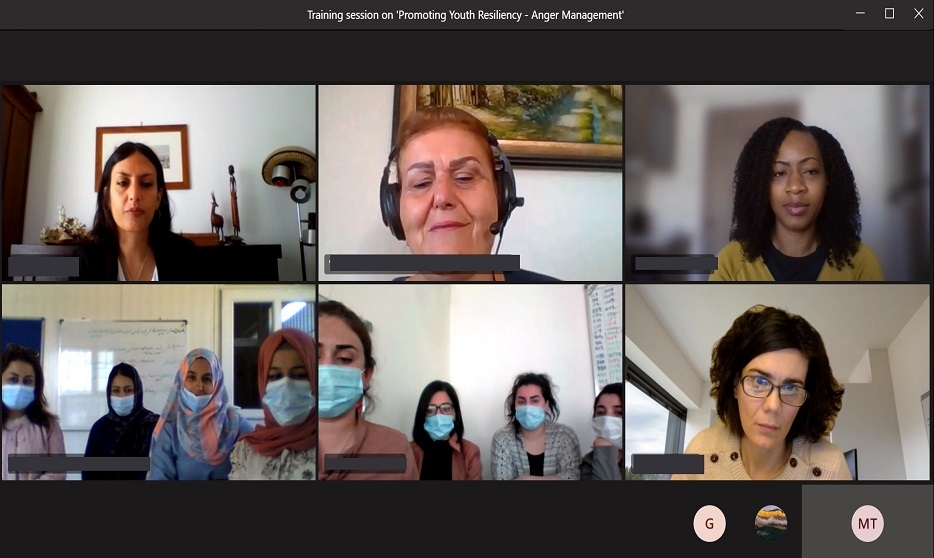UNITAD Psychosocial Training Sessions for Emma Organization for Human Development
29 March 2021, Baghdad - Through a series of five training sessions, WPSU psychology team actively contributes to strengthening the technical capacity of Emma’s psychosocial workers to provide psychosocial support to survivors experiencing mild and moderate mental health related concerns and disorders. The training modules that are delivered online focus on a range of essential knowledge and skills that support the setting up of interventions.
The sessions are specifically tailored to the needs of survivors, staff and organization in line with international best practices and the ‘no-harm principle’.
Trauma Related Symptoms: Identification & Management - 15 March 2021
The training session aimed to develop their knowledge and understanding of trauma, its impact on individuals and communities, as well as introduce practical steps for identification and management of symptoms.
The main components of training were:
- Understanding Trauma and Post Traumatic Stress Disorder (PTSD)
- The impact of Trauma on individuals, communities
- Transgenerational trauma
- Shame in the aftermath of Trauma
- Identification and management of Trauma related symptoms
Anger Management for Youth - 29 March 2021
The training aimed at providing practical guidelines on how to prepare and deliver an anger management session for kids and young adults. The PSS team presented the topic of anger, guiding Emma’s staff into exploring its main physiological and emotional features, dispelling some myths around the topic, and suggesting practical techniques to support beneficiaries.
The main topics discussed were:
- Anger and underlying emotions in the aftermath of trauma
- Physiology and circle of anger
- Awareness, relaxation, and self-regulation techniques to deal with anger
- Main components of anger management programs for youth
Suicide prevention and intervention - 8 April 2021
The training session has been designed and produced to provide Emma’s psychosocial workers with valuable information to help prevent and deal with suicide in a context of rising suicide rates among the Yezidi community in the Kurdistan Region. This will enable participants to recognize and respond to at-risk individuals and assist to create an action plan and resources.
The main components of training are:
- Risk factors leading to suicidal acts
- Warning signs of suicide intentions
- Intervention suggestions to do immediately and after suicide attempts
Ambiguous loss and unresolved grief – 11 May 2021
In the aftermath of war, genocide and mass atrocities, grieving may acquire very specific connotations. This training aims at developing participants’ knowledge and understanding of ambiguous loss and unresolved grief, and their impact on an individual and community level. It will illustrate the main characteristics and implications of ambiguous loss and will provide participants with practical guidance on how to support beneficiaries. The main components of training are:
- What’s ambiguous loss or unresolved grief?
- The different types of ambiguous loss
- Effects of ambiguous loss
- How to cope with ambiguous loss
- Understand and promote the role of rituals and public acknowledgement in the case of ambiguous loss
How to deal with dissociation – 25 June 2021
Recollection of traumatic events can trigger acute emotional reactions in survivors, such as dissociation. In their different forms and levels of intensity, dissociative symptoms can be quite overwhelming for the affected person. The training will provide participants with some knowledge of the main characteristics of dissociation and the tools and resources to best handle such reactions in practice. The main components of training are:
- What is dissociation?
- Signs and symptoms
- How does trauma cause dissociation?
- Strategies to deal with dissociation: practical grounding and relaxation techniques


